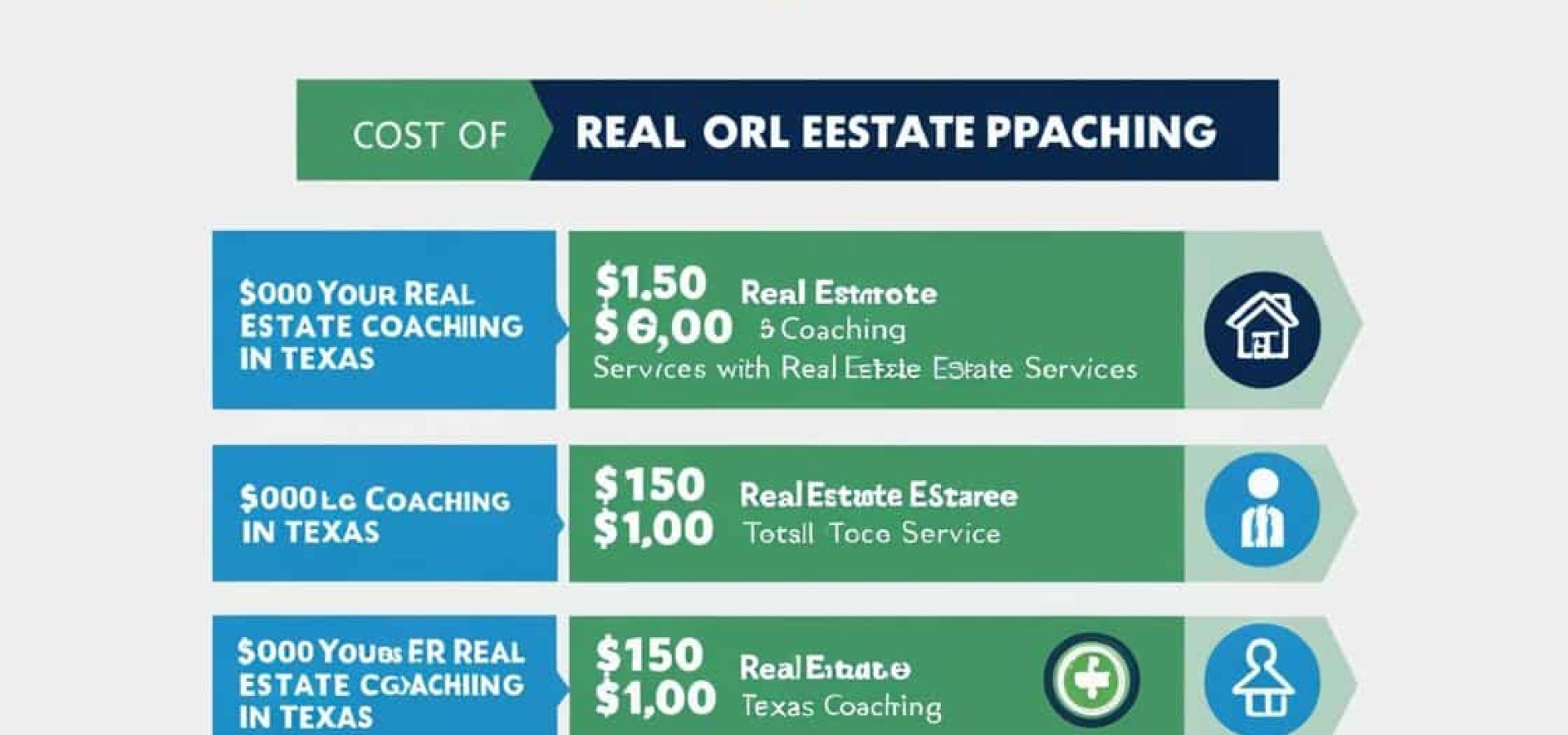
If you’re a new or growing agent in the Texas real estate market, chances are you’ve thought about hiring a coach. Whether you’re in the competitive suburbs of Dallas-Fort Worth, the luxury pockets of Austin, or the expansive Houston metro, you may be asking yourself:
“How much does real estate coaching actually cost in Texas—and is it worth it?”
The short answer: Coaching can range from less than $100/month to several thousand dollars a month, depending on the format, expertise, and level of access. Let’s break down the different pricing tiers, what you get for your investment, and how to choose a plan that matches your goals.
Coaching is not a one-size-fits-all service. The price often depends on:
The coach’s experience and reputation
Whether it’s one-on-one or group coaching
The depth of training and resources provided
The frequency of meetings or sessions
Whether it’s tailored to the Texas market or more general
Let’s look at the most common categories of coaching in Texas real estate.
Cost: $0 (included with brokerage split or fees)
Best for: New agents at large firms (Keller Williams, eXp, Compass, etc.)
Many large brokerages in Texas offer in-house coaching, training, or mentorship programs as part of their agent onboarding. These programs are usually designed to help you close your first few deals, build your pipeline, and get a feel for the industry.
Pros: No extra cost, local context, networking with peers
Cons: Less personalized, not always performance-focused
Cost: $100–$500/month
Best for: Agents seeking affordable, community-based support
Group coaching gives you access to regular training calls, community forums, live Q&A sessions, and downloadable resources. Many Texas agents love this format for the camaraderie and shared experiences, especially in city-specific programs.
Examples:
Weekly mastermind calls
Monthly workshops on marketing or lead generation
Group accountability tracking
Pros: Affordable, collaborative, often includes templates and scripts
Cons: Less personal attention, slower progress for some
Cost: $500–$2,500+/month
Best for: Full-time agents who want tailored, fast-tracked growth
If you’re serious about scaling your income or building a team, one-on-one coaching offers the most personalized and results-oriented support. This includes custom business planning, marketing audits, deep accountability, and sometimes even roleplaying scripts or negotiation practice.
Some coaches in Texas specialize in high-growth urban markets (like Austin or Dallas), luxury real estate, or investor-based niches.
Pros: Full attention, strategic planning, consistent momentum
Cons: Higher financial investment
Cost: $3,000–$10,000+ (one-time or annual)
Best for: Experienced agents or brokers looking to scale, build teams, or develop passive income streams
These programs often include in-person retreats, private coaching calls, done-for-you marketing systems, and access to a high-level peer network.
Pros: Deep business transformation, high-level networking
Cons: Not suitable for beginners or those without consistent income
Here’s the golden rule of coaching:
If a coach helps you close just one or two extra deals, they’ve paid for themselves.
In Texas, the average real estate commission on a single sale can range from $6,000–$15,000 depending on the property price. If your coach helps you close even one extra transaction per quarter, you’ve likely exceeded your ROI.
Real estate coaching is an investment in you—your systems, your mindset, your growth, and your income. Whether you’re closing your first deal in San Antonio or scaling your business in Plano, the right coach can dramatically change your trajectory.
Ask yourself: What’s the cost of staying stuck where I am for another year?
Because the right coach doesn’t cost you money—they save you time, lost opportunities, and frustration.
Subscribe for exclusive property listings and market updates.
Ready to take your first step toward a successful real estate career?
Join the Modern Agent Institute community today and get 10% OFF your first course—just for subscribing to our email list!
Stay ahead with insider updates, career tips, and exclusive offers designed to help you launch, grow, and lead in Texas real estate.